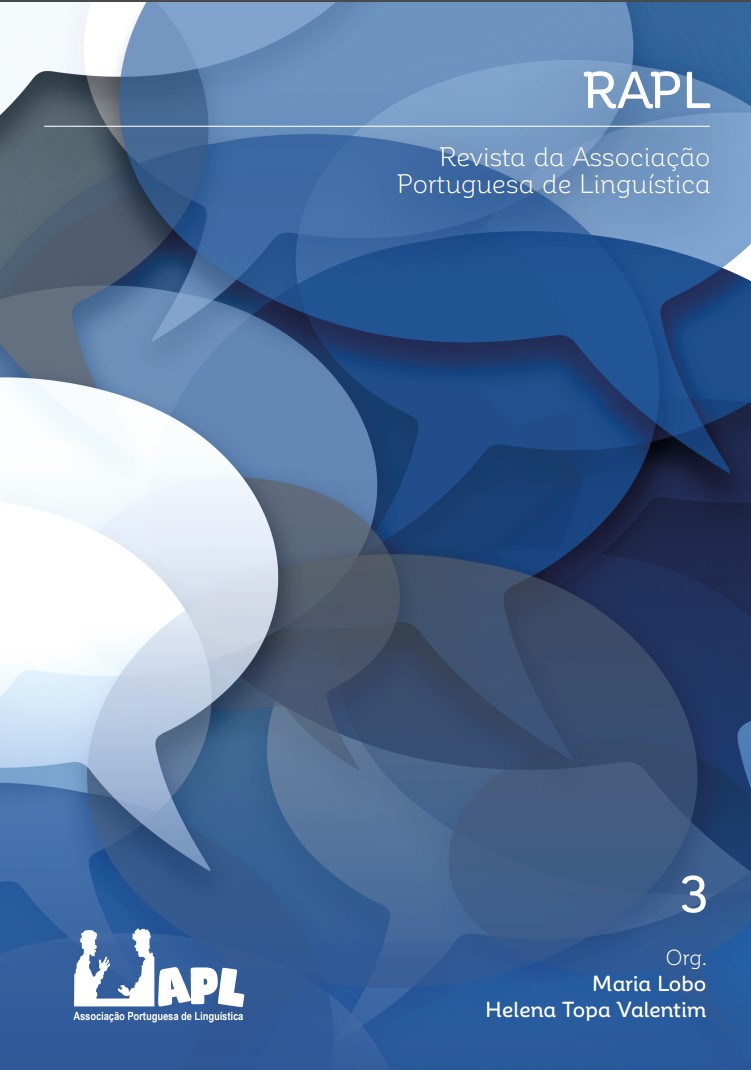Conditional and 'ir' in the Imperfect + Infinitive: questions of temporality and modality
DOI:
https://doi.org/10.26334/2183-9077/rapln3ano2017a6Keywords:
semantics, temporal relations, condicional, condicionalir ('go') Infinitive, modalityAbstract
In European Portuguese, both the Condicional (approximately corresponding to the English structure would + Infinitive) and the construction ir (‘go’) in the Imperfect + Infinitive express posteriority with respect to a given past interval. In this paper, I show that, in spite of their seemingly similar behaviour, these two forms diverge in a number of significant aspects. In particular, and taking into account the analysis of contexts such as if-clauses and some subordinate complement clauses introduced by factive and intensional verbs, I will argue that, while the Condicional is mainly used to provide modal information, even losing its basic temporal value, the structure ir (‘go’) in the Imperfect + Infinitive always induces a temporal relation of futurity in a past domain, irrespective of the possible modal meanings accompanying it.
Downloads
Downloads
Published
How to Cite
Issue
Section
License
Copyright (c) 2017 Luís Filipe Cunha

This work is licensed under a Creative Commons Attribution-NonCommercial-ShareAlike 4.0 International License.
Authors retain copyright and concede to the journal the right of first publication. The articles are simultaneously licensed under the Creative Commons Attribution License, which allows sharing of the work with an acknowledgement of authorship and initial publication in this journal.
The authors have permission to make the version of the text published in RAPL available in institutional repositories or other platforms for the distribution of academic papers (e.g., ResearchGate).




